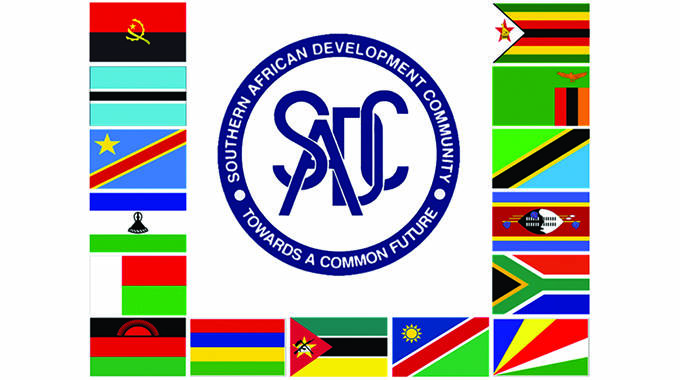SADC records US$678bn RTGS transfers in 10yrs
THE Southern African Development Community (SADC) has processed over 2,9 million cross-border transactions valued at US$678 billion in the last 10 years through the Real Time Gross Settlement (RTGS) platform as the region continues to make progress on financial inclusion.
RTGS is an electronic interbank settlement system, which settles payments between participating banks in real time and is enabled to facilitate transfers among SADC countries.
So far, 13 countries out of the 16 SADC member States, including Zimbabwe, South Africa, and Zambia are at different stages of developing and implementing national financial inclusion strategies and roadmaps in line with the bloc’s new five-year strategy on financial inclusion and Micro, Small Medium Enterprises (MSMEs) access to finance with the support of the SADC Secretariat
In Zimbabwe, MSMEs are a key driver to economic development, employment creation and unlocking entrepreneurial skills that facilitate wealth creation in line with the objectives of the country’s development agenda of becoming an upper-middle-income society by 2030.
The country’s economy is largely dominated by MSMEs, which contribute an estimated 60 percent to the Gross Domestic Product.
In his address during the just-ended SADC Industrialisation Week in Harare, Finance, Economic Development and Investment Promotion Deputy Minister David Mnangagwa said research has revealed that the MSME sector employs an average of two-thirds of the labour force in developing countries and contributes significantly towards national incomes.
Commendably, he said SADC member States have adopted policies, strategies and programmes to promote MSMEs recognising their strategic imperative and importance for the region’s development.
To facilitate trade and investment by MSMEs, Deputy Minister Mnangagwa said the region’s RTGS platform has 90 central and commercial banks from 15 of the 16 member States that are electronically linked to effect cross-border payments and settlements in real-time.
“Given the majority of MSMEs are owned by women, I understand that SADC has made progress in the implementation of the SADC regional infrastructure platforms and projects to support financial inclusion and MSMEs access to finance.
“The RTGS platform reached a milestone of 10 years in 2023 with over 2,9 million transactions having been settled on the system to the value of R11,51 trillion, translating to about US$678 billion,” he said.
Zimbabwe’s MSME sector is largely informal, with only 14 percent being formalised.
Deputy Minister Mnangagwa said financial inclusion for formerly-served MSMEs improved significantly from 18 percent in 2012 to 95 percent in 2022.
About 40 percent of MSMEs were banked in 2022, up from 14 percent in 2014 and mobile money transfer platforms were playing a pivotal role in making the financial services sector more inclusive and reducing the level of financial exclusion.
“In addition, I’m informed that SADC is promoting equitable access for women-owned businesses and women entrepreneurs through the financial inclusion gender action plan under a project which is funded by the Dutch.
“While significant progress has been registered on the access trend, the FinScope surveys of 2022 revealed that women, youth and MSMEs continue to face challenges due to lack of access to markets, lack of requisite collateral, information asymmetry, low-level investment infrastructure, complex and cumbersome laws and regulations, poor financial management and financial literacy,” he said.
Deputy Minister Mnangagwa said to promote MSMEs, the Government launched the National Financial Inclusion Strategy 2 (NFIS2) running from 2022 to 2026 building on the successes and results from NFIS1, which is in line with the SADC region’s new five-year strategy.
NFIS2 is anchored on financial innovation, consumer protection and financial capability, devolution and micro-financing, MSME and entrepreneurship development.
The strategy also promotes gender balance and entrepreneurship development through capacity building and the development of customer-centric financial products and services.
On account of the growing proliferation of informal sector activities in the region, Deputy Minister Mnangagwa highlighted the need to reverse the status quo and integrate such businesses into the formal and taxable economy.
“I, therefore, encourage member States and stakeholders to collaborate on formalising and educating MSMEs, highlighting the benefits of formalisation and offering suitable incentives to support this transition.
“On access to finance and to empower MSMEs and closing the financing gap, the Government of Zimbabwe established deposit-taking microfinance institutions which includes the empowerment bank popularly known as Empower Bank Zimbabwe, the Women’s Microfinance Bank to enhance financial inclusion of women, the youth and indigenous Zimbabweans.
“These establishments enhance the landscape of financial services and products targeted at women by ensuring access to loans at concessionary rates,” he said.
Through the national budgets, Deputy Mnangagwa said, the Government was extending loans to MSMEs utilising institutions such as the Women’s Development Fund, the Zimbabwe Community Development Fund, the Zimbabwe Women’s Microfinance Bank and Empower Bank.
He said the funding has been pivotal in supporting the targeted groups to acquire new machinery, diversifying to new products and markets, consequently enhancing business growth, and competitiveness and creating new jobs.
“Following the realisation that MSMEs, women, youth and persons living with disabilities have limited or no formal collateral required in accessing finance, in 2018 the Reserve Bank of Zimbabwe in line with a national financial inclusion strategy resuscitated the credit guarantee scheme which is provided through the Export Credit Guarantee Company of Zimbabwe,” he said.-herald











